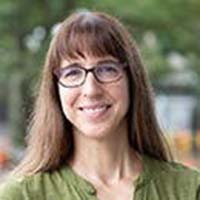
Carol Barford is an associate scientist and the director of SAGE. Her work centers on agriculture, food, environmental quality, and related risks.
Recent Projects
- Wisconsin Farm Biomass Production and the Emerging Carbon Economy. This project used Wisconsin as a case study of the feasibility of farm-based bioheat and power production. The study incorporated physical, ecological, agronomic, and economic factors to determine feasibility.
- Farm-Based Bioenergy Infrastructure for Wisconsin: Too Big, Too Little, or Just Right. This project aimed to determine the optimal scale of bioenergy development in Wisconsin. The optimal scale was defined in terms of net greenhouse gas emissions, fossil fuel replacement, efficient use of farmland, and economic feasibility.
- Energy Intensity of Crop and Dairy Production on Wisconsin Farms. This project used USDA data from individual farms to analyze relationships between farm activities, farm size, and other characteristics that drive farm energy use. The exposure of Wisconsin farms to energy price risk was also examined.
Before joining SAGE, Barford completed a BA in biology and a MS in ecology at Boston University, and a PhD in environmental engineering at Harvard University. For her PhD thesis, Barford measured nitrogen stable isotope effects of denitrification and applied the results to track nitrous oxide production in agriculture and wastewater.
Dr. Barford also held a post-doctoral position in atmospheric chemistry at Harvard, where she studied forest carbon cycling. Her synthesis of biometric and atmospheric methods of measuring forest carbon balance appeared in the journal Science.